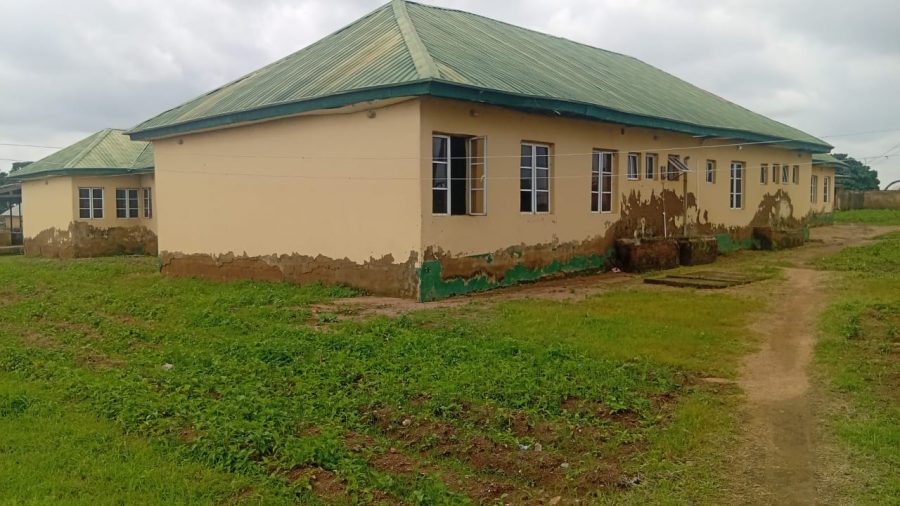“I had my first child through caesarean section, and I lost the baby…” Whispers Fatima Abdulrashid, her voice heavy with grief.
The cries of grieving mothers echo through the community from Dan Alhaji Primary Health Centre (PHC) in Kaduna State. Each loss tells the same painful story of delays, poor access, and a struggling health system that fails to save children who could have lived.
The facility is often the first point of call for maternal and childcare, yet poor road access and transportation challenges delay referrals. For pregnant women, the distance and financial barriers mean many arrive only when complications have set in, putting both mothers and babies at risk.

Fatima Abdulrashid, a young mother, has lived through unbearable loss. “I had my first child through caesarean section, and I lost the baby. I started bleeding profusely at home and fainted. I think an infection caused it,” she recalls. Fatima has lost two children due to these inadequacies.
Dan Alhaji PHC, a Basic Health Care Provision Fund (BHCPF) focal facility, serves thousands of rural residents in Kaduna State. Despite ongoing renovations, the centre struggles with empty pharmacies, unreliable equipment, and critical drug shortages.
Mardiya Abubakar’s story is similar: “After finding out my baby was breech; I went into false labour and had an emergency caesarean section. My baby survived briefly but died in the incubator a few days later,” she said.
Midwife Phidelia Moses explains that “most times, before women arrive, they are already in severe complications—bleeding, distress, or prolonged labour. Sometimes the mother or child does not survive. Financial issues, religious barriers, and lack of the husband’s consent also prevent women from seeking care early.”
Pharmacist Ameer Yusuf explains another layer to the problems, “the process of getting drugs takes too long. After requisition, it can take one or two months before supplies come. That makes it very difficult for us.”
The cries at Dan Alhaji’ PHC reflects systemic challenges across rural PHCs, drug stockouts, poor emergency transport, and low maternal health literacy. Even as a BHCPF facility, gaps in funding efficiency and workforce capacity limit its ability to reduce maternal and child deaths. They are a call for urgent action. No mother should bleed to death waiting for transport. No baby should die because essential drugs take months to arrive.
The Nigeria’s Health Sector Renewal Investment Initiative, through its second pillar, seeks to ensure equitable, quality PHC systems for all its citizens. For Dan Alhaji, addressing transport, drug supply, and wider maternal education would significantly improve health outcomes for mothers and children in the community.
To end preventable child deaths at PHC Dan Alhaji, Kaduna State health agencies should:
- Improve emergency transport and referral systems in the facility.
- Ensure timely drug supply chains.
- Expand maternal health education in rural communities.
- Strengthen neonatal care training for health workers.
“Healthy mothers mean healthy communities,” says midwife Moses. “With the right support, we can stop losing babies to causes we know how to prevent.” The question remains: how many more children must die before change comes to Dan Alhaji PHC?